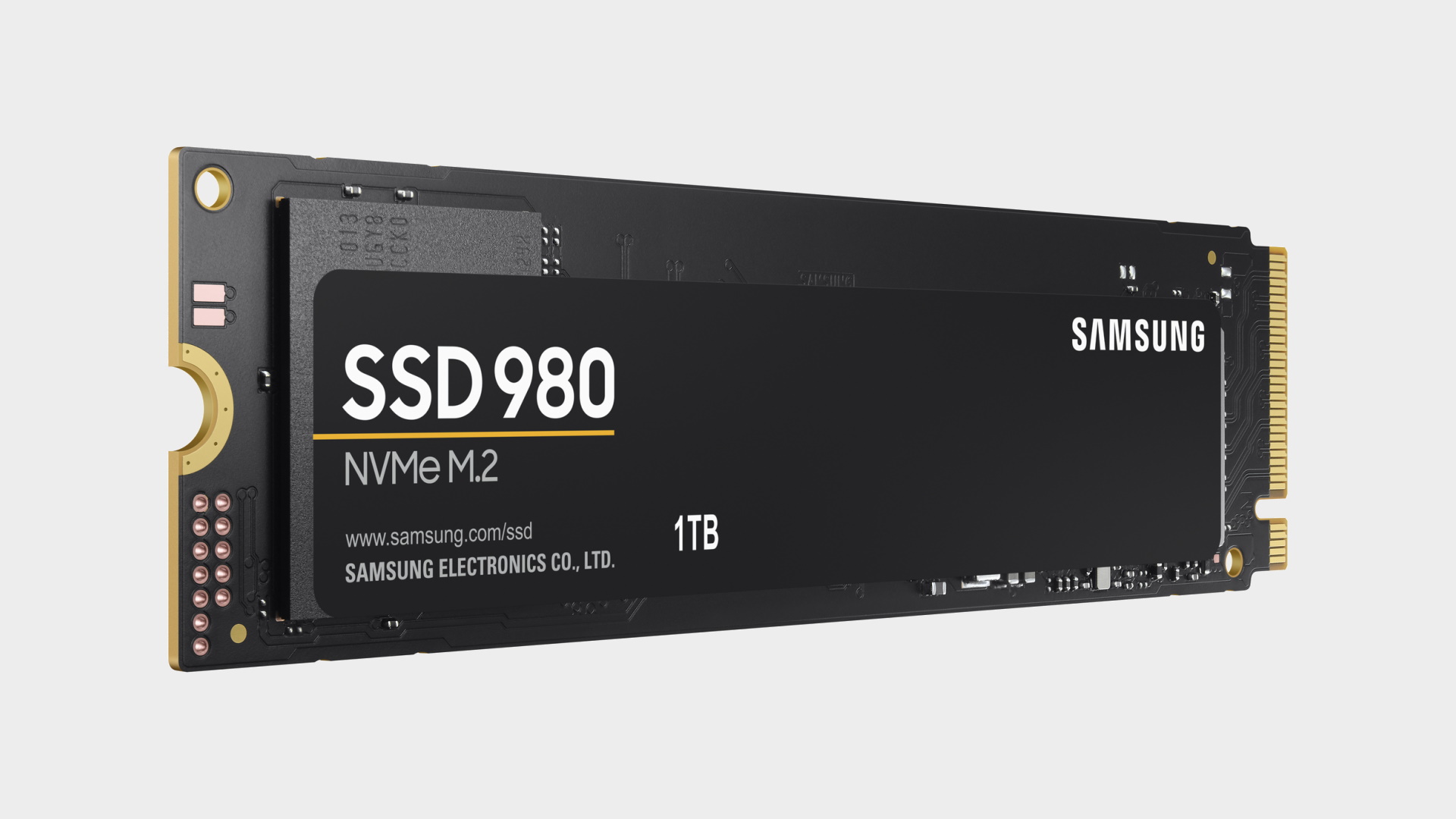Our Verdict
There's nothing inherently wrong with Samsung's latest SSD, but it's hard to get excited about PCIe 3.0 performance in 2021.
For
- TurboWrite 2.0 is impressive
- Excellent Samsung Magician
- Reasonably affordable
Against
- Last-gen interface
- Slow write performance at times
PC Gamer's got your back
The Samsung 980 is the latest M.2 NVMe SSD to hit the virtual shelves. Unlike the Samsung 980 Pro version that came before it, this is a PCIe 3.0 drive. This means the sequential read and write speeds top out a lot lower than its predecessor, half for the reads in fact, and not far off that for the writes as well. The good news is the price has dropped in line with this spec as well, and at $130 for this 1TB model, you're looking at $0.13/GB.
Capacity: 1TB
Controller: Samsung Pablo
NAND: Samsung 6th-gen V-NAND
Interface: M.2 PCIe 3.0 x4
Rated seq. read: 3,500 MB/s
Rated seq. write: 3,000 MB/s
Warranty: 5 years
Price: $130 (£130)
Three new drives are being introduced in total, with this 1TB drive being joined by 500GB and 250GB SSDs as well. All the drives use the same Samsung Pablo controller, backed up by the company's own 6th-gen V-NAND, which is the same as can be found in the 980 Pro. This 1TB drive is the fastest of three thanks to more of the controller's channels being populated.
Ostensibly this latest PCIe 3.0 SSD is a direct replacement for the Samsung 970 Evo, but the big news here is the Samsung 980 is a DRAMless drive, as in there is no DRAM buffer present. DRAM generally helps the most with write performance, but Samsung believes it can save some cash on this front and still provide decent performance thanks to the use of its Host Memory Buffer (HMB) feature and Intelligent TurboWrite 2.0 tech, which on this 1TB model sets aside a chunky 160GB for improved performance.
The lack of a DRAM buffer means that you won't hit a situation that can be found on some drives where you fill the DRAM buffer and then hit a notable drop in performance as you drop to the drive's raw performance. The downside is that more day-to-day transfers don't benefit from such a buffer.
As is standard these days, the drive comes with a 5-year warranty, with this 1TB model offering up a total byte written (TBW) figure over that period of 600 terabytes. It's a fairly cool-running SSD as well, thanks to a thin copper film integrated into the heat spreader and the use of a nickel coating on the controller chip to help dissipate heat faster. Samsung has also introduced something it calls Dynamic Thermal Guard to stop the drive overheating—in testing the drive peaked at 62°C, which is at the cooler end of the scale.
Samsung has updated its excellent Magician software for the Samsung 980 as well, with the introduction of Full power mode, which effectively turns off lower power states to ensure the drive never goes to sleep and is always available. Given we didn't have a problem with the drive's operating temperatures, this doesn't seem a problem, although at the same time, if you're after serious performance, there are other, faster drives out there—such as the Samsung 980 Pro, Sabrent Rocket 4.0 Plus and the WD Black SN850.
Performance
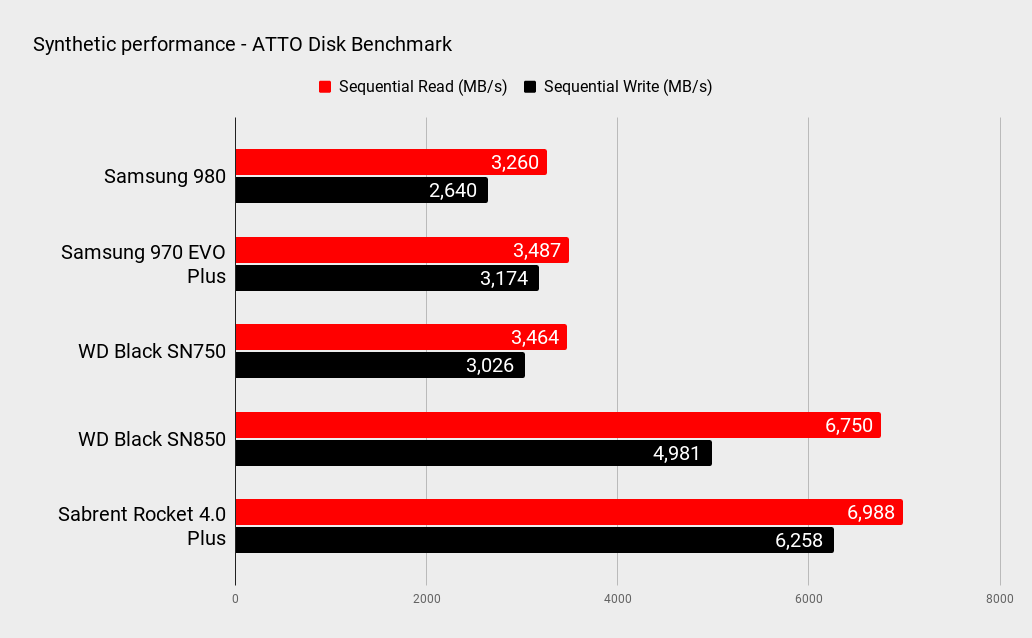
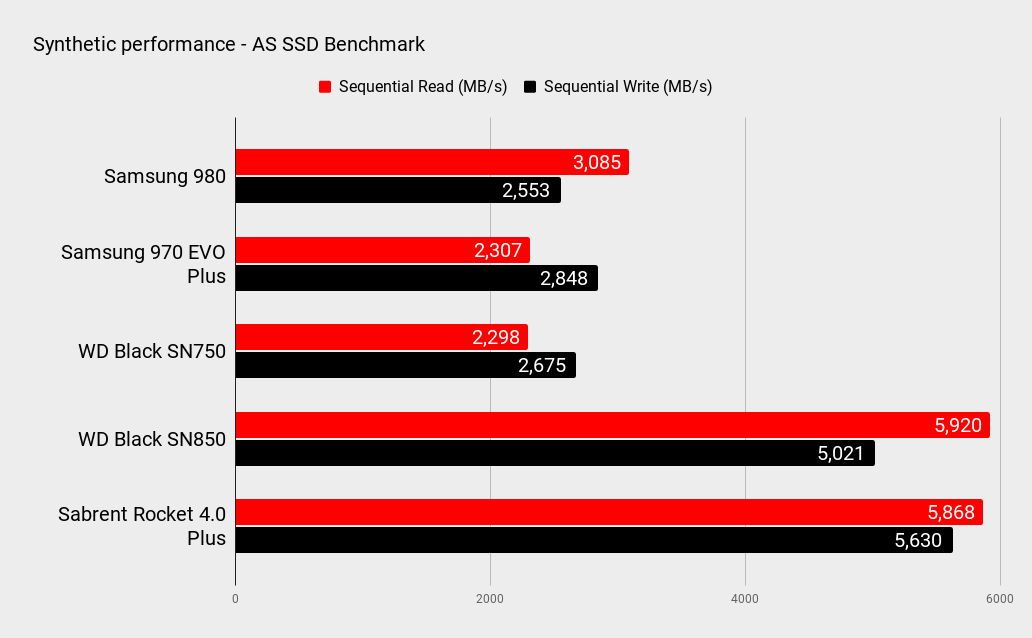
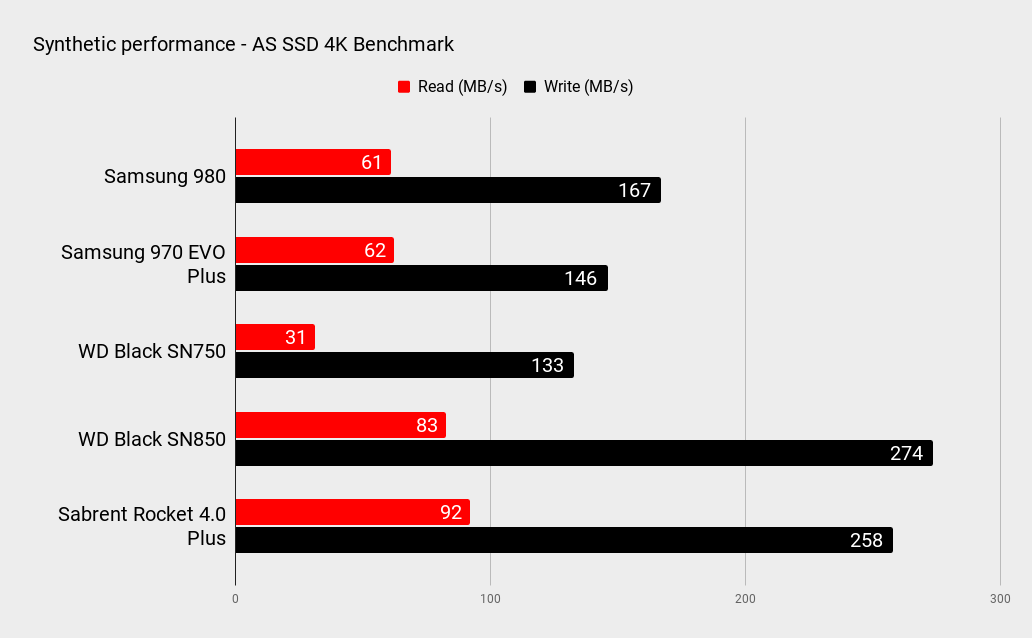
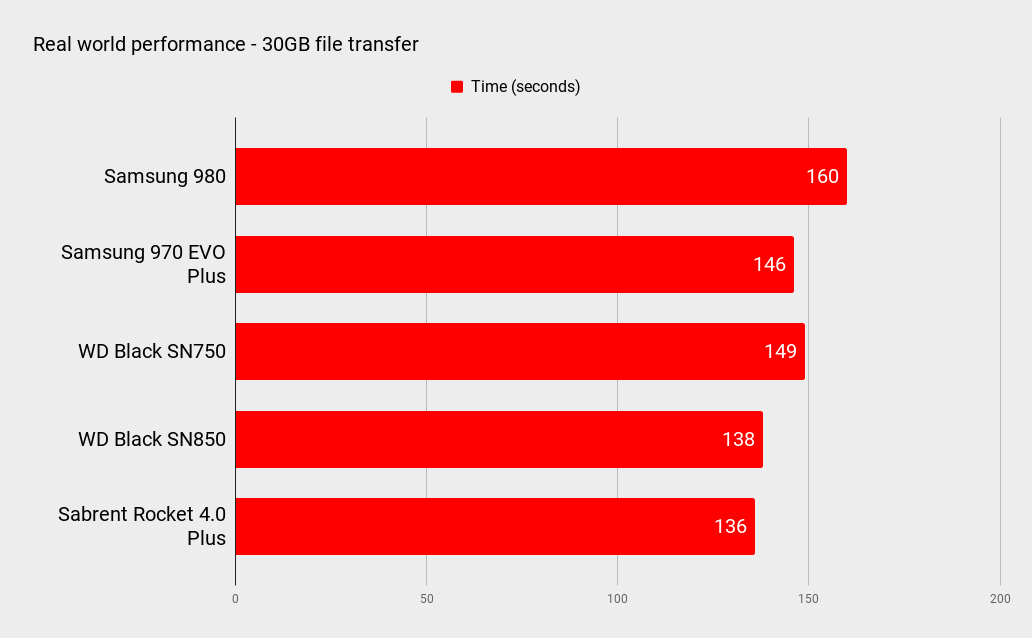
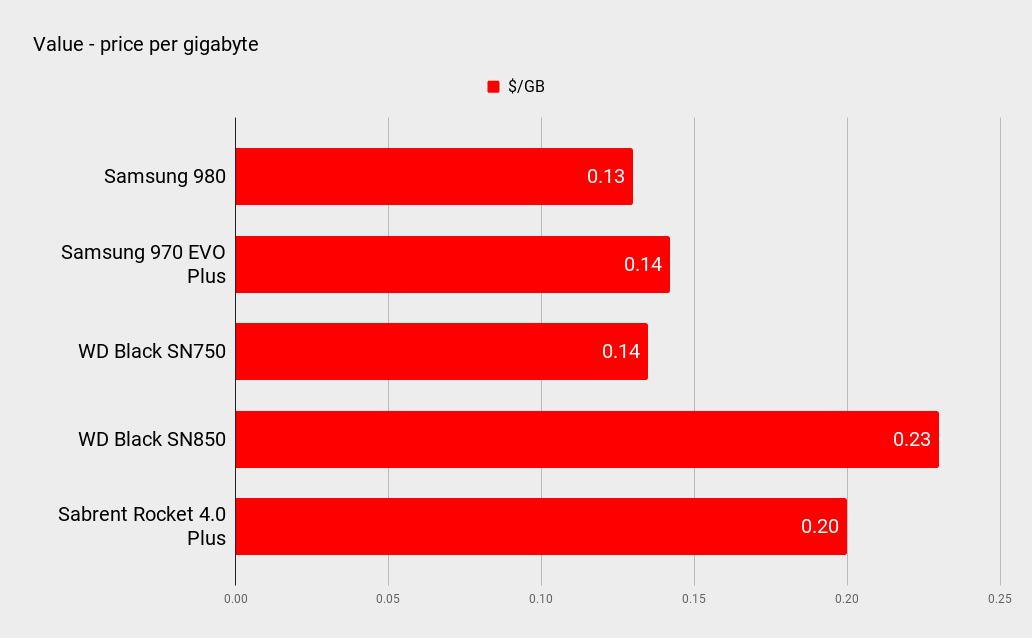
When it comes to performance, the Samsung 980 is a bit of a tricky one, simply because it's a new PCIe 3.0 drive in an era of PCIe 4.0 drives. While there's clearly still a massive market for what is effectively last-gen SSDs, this month sees the introduction of Intel's Rocket Lake, which has PCIe 4.0 support on the positives column. Basically, if you're looking to upgrade in the near future, I'd recommend most PCIe 4.0 drives over the Samsung 980 for that reason alone. They're backwards compatible, and will be there when you do upgrade to a fully compliant PCIe 4.0 platform.
Keep up to date with the most important stories and the best deals, as picked by the PC Gamer team.
Old school platform aside, the performance on offer here is perfectly acceptable. There's nothing really exciting to note, but nothing terribly wrong either. The writes can be on the slow side, managing just 2,640MB/s in ATTO and 2,553MB/s in the AS SSD sequential test. This lags behind other PCIe 3.0 drives, including the Samsung 970 EVO, but not by a tremendous amount. And the Samsung 980 claws this deficit back in the 4K tests nicely—this will make a great speedy OS drive.
The real-world tests are a bit more telling though, with the 30GB folder transfer taking 2 minutes and 40 seconds to complete, some 14 seconds slower than the 970 EVO, and 11 seconds behind the WD SN750. The Final Fantasy XIV game loading benchmarked took 8.358 seconds, which isn't bad for a PCIe 3.0 drive, although almost a second behind the fastest drives out there.
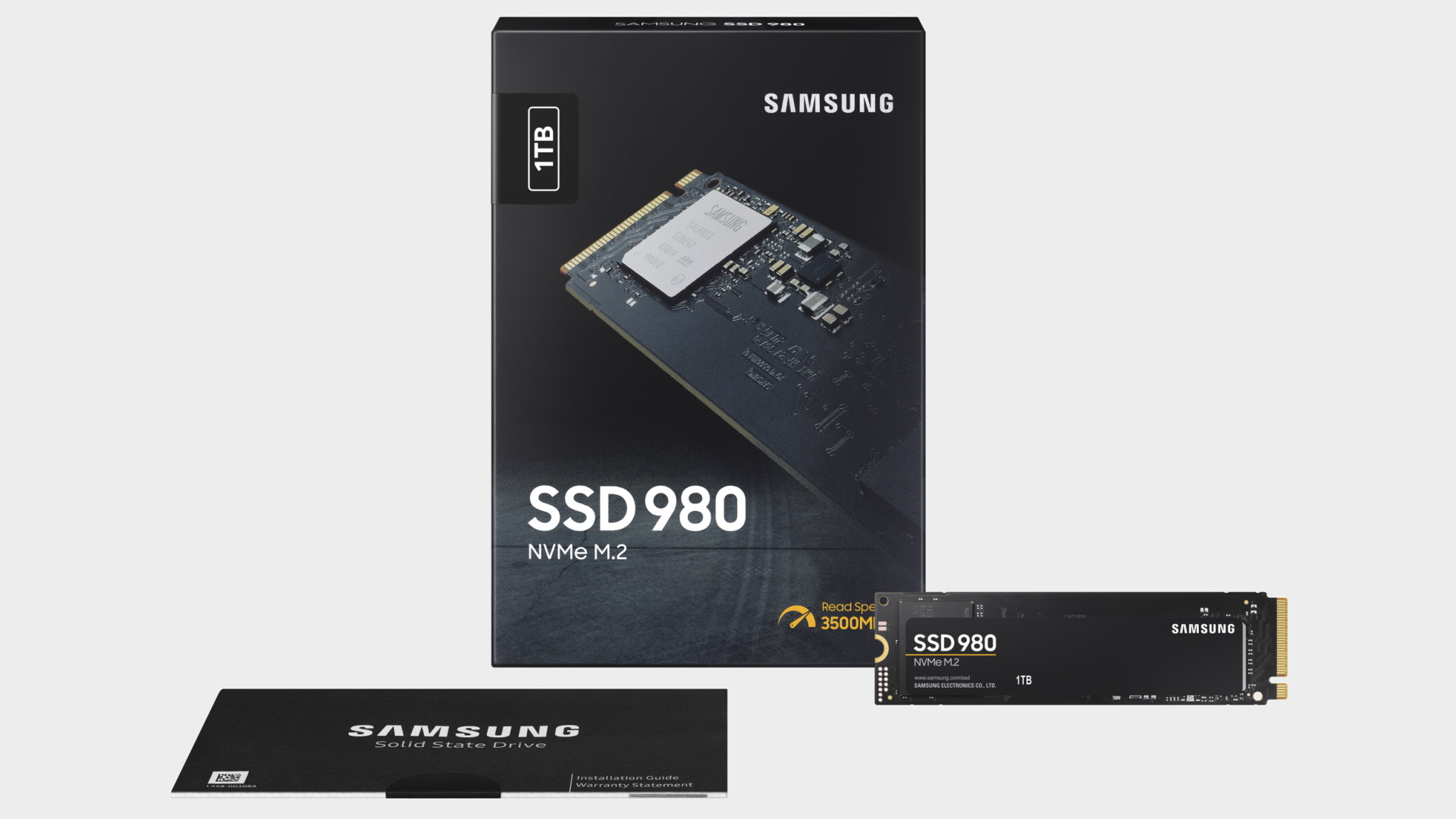
Overall, the Samsung 980 mostly achieves what it sets out to do. It's a bit on the slow side at times, particularly when it comes to the writes, but it's in the right ballpark. The problem is more to do with the pricing. The likes of the Samsung 970 EVO and Western Digital SN750 have the edge over in several tests, and right now there isn't a lot of difference in terms of pricing—you can pick up the Samsung 970 Evo from $142 and the WD SN750 costs $135.
If you're still rocking an Intel machine and need a new M.2 drive, then this is definitely worth considering. Depending on what's happening with the price at the very moment you're buying, this could be the best option—and you know you're in safe hands with Samsung. It just feels like it doesn't really change the market much, given there are plenty of SSDs already out there that do pretty much exactly what this does.
The real question you have to ask yourself here is: When are you going to upgrade next, and do you want access to next-gen game loading when that appears? Given by this time next month both Intel and AMD platforms are going to be supporting PCIe 4.0 SSDs, it seems a strange time to release a last-gen drive. Especially one that doesn't really stand out in any particular way.
There's nothing inherently wrong with Samsung's latest SSD, but it's hard to get excited about PCIe 3.0 performance in 2021.
Alan has been writing about PC tech since before 3D graphics cards existed, and still vividly recalls having to fight with MS-DOS just to get games to load. He fondly remembers the killer combo of a Matrox Millenium and 3dfx Voodoo, and seeing Lara Croft in 3D for the first time. He's very glad hardware has advanced as much as it has though, and is particularly happy when putting the latest M.2 NVMe SSDs, AMD processors, and laptops through their paces. He has a long-lasting Magic: The Gathering obsession but limits this to MTG Arena these days.
